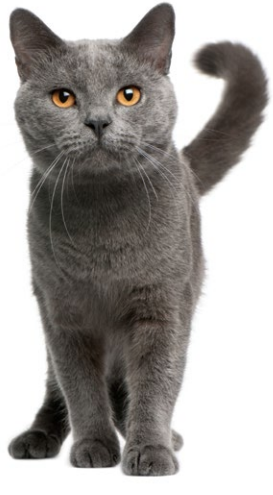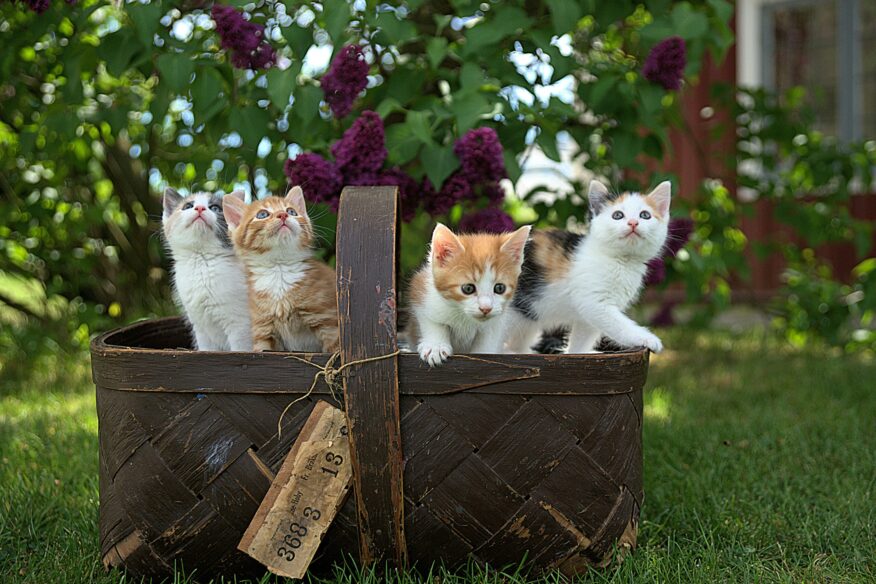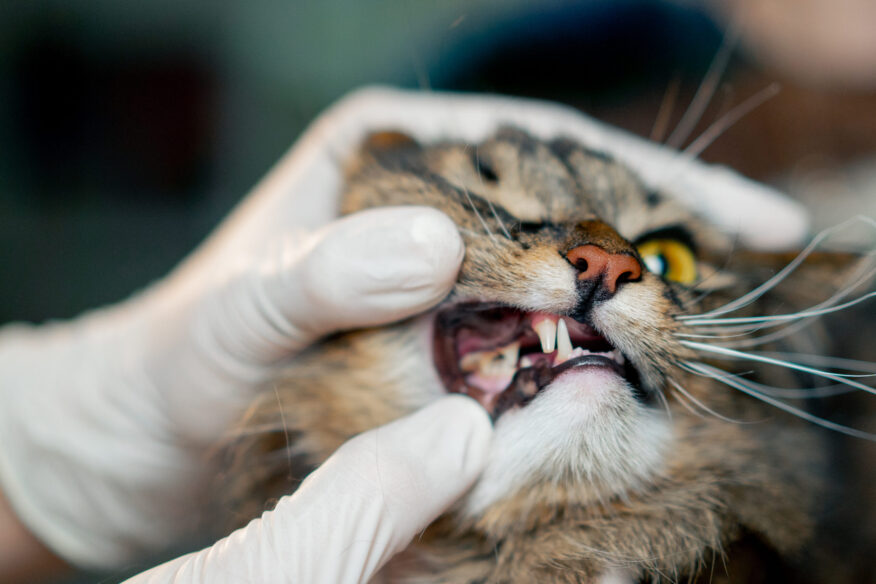Old age is not a disease
As a result of advances in veterinary medicine, more knowledgeable care and improved nutrition, cats are now living much longer, healthier lives. But, just as for humans, the passage of time has its effects, and you may begin to notice that your once-frisky feline seems to have slowed down a bit. Being aware of the natural changes that can occur as your cat reaches his or her golden years, as well as what you can do to help keep your pet as healthy, active and comfortable as possible, can ensure that you both enjoy this stage in your cat’s life to the fullest.
Check-up time now comes twice a year
As your cat ages, regular check-ups at your veterinarian become more important than ever. Adult cats age up to four human years in one calendar year. Vets recommend a thorough examination every six months. Besides the usual complete physical examination, your veterinarian may conduct a urine and faecal analysis and a full blood screen.
If your cat goes outdoors, or lives with other cats, your vet may recommend testing.The vet will test for feline leukaemia and immunodeficiency virus.

How – and when – will I know that my cat is getting “old”?
As cats age, they show gradual changes similar to aging humans.They may grow gray hair, lose flexibility, and dull their reflexes. Hearing, eyesight and the sense of smell may deteriorate and energy levels seem to diminish. In fact, the first sign of ageing is often a general decrease in activity, combined with a tendency to sleep longer and more soundly. Such signs may begin to manifest themselves anywhere between the ages of 7 and 11.A healthy, desexed indoor cat ages later.Disease shortens the lives of many other cats. Wild tomcats only live about three years. A well-cared-for male house cat can live into his early twenties. Again, as with humans, the ageing process will vary with the individual. Your veterinarian will be able to judge when it’s time to consider your cat a “senior.”
Keep your veterinarian informed
Most importantly, you should tell your veterinarian about any noticeable change in your cat’s physical condition or behaviour. A problem that you may assume is simply related to your cat’s advanced age may actually be the result of a treatable medical condition. For example, your cat’s lack of interest in exercise or play may not stem from the normal decrease in energy that comes with age, but be due to the stiffness and pain that results from arthritis – a condition that can be managed with proper treatment. Regular, semi-annual check-ups can thus help your veterinarian work out a suitable preventative health program for your cat and catch any disorders sufficiently early to provide effective treatment. Working together, you can both ensure that your cat’s senior years will be healthy and happy ones.
Put a healthy diet on the menu
As he or she ages, your cat’s nutritional needs may also change. You may find that, although your cat is eating less, they still put on weight. This could be due to a slowdown of their metabolism or a decrease in their activity. Excess weight can aggravate many feline medical conditions, including heart, respiratory, skin and joint problems.
To help a portly cat slim down, feed it smaller food quantities.You can also switch to a lower-calorie diet. Other cats have the opposite problem: they lose weight as they age. Diseases like diabetes or heart issues can cause this loss.
A reduced sense of taste also causes appetite loss.
In either case, ask your veterinarian for advice about your cat’s individual nutritional requirements.
Top 10 health tips for senior cats
- Take your cat to their veterinarian for twice-yearly check-ups.
- Become informed about conditions and diseases common to senior cats, be on the lookout for symptoms and, should they arise, inform your cat’s veterinarian promptly.
- Feed your cat the best food you can afford and consider giving them several small meals a day rather than one large one.
- Don’t overfeed – obesity causes many health problems and may shorten your cat’s life.
- Make sure your cat receives adequate exercise to preserve muscle tone, preserve bone and joint strength and fight obesity.
- Look after your cat’s dental health. Have their teeth cleaned professionally when your veterinarian so advises, and ideally brush their teeth daily.
- Have your veterinarian do a risk assessment to determine an appropriate vaccination protocol for your cat.
- Do your utmost to control fleas, ticks and intestinal worms and make sure your cat and their environment (bed, play area, etc.) are always spotlessly clean.
- Check your cat’s nails weekly and trim them as often as necessary, as senior cats may not use their scratching posts as often as they did when younger.
- Give your cat lots of love and attention and do all you can to keep them interested, active, happy and comfortable.
Senior cat food
Do make sure that your cat’s diet is well balanced, highly palatable, digestible and contains potassium and taurine. Since food with high mineral and protein content should
be avoided, ask your veterinarian for recommendations about a type that’s right for your cat. Do consider, in consultation with your veterinarian, increasing the level of fibre in your cat’s diet, especially if they suffer from frequent constipation. Do try warming food to body temperature—it may make meals more tempting to senior cats with poor appetites. Don’t feed your cat between-meal snacks or table scraps.




